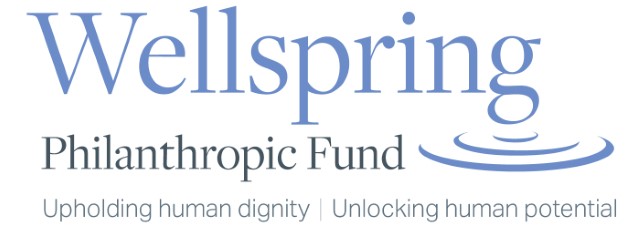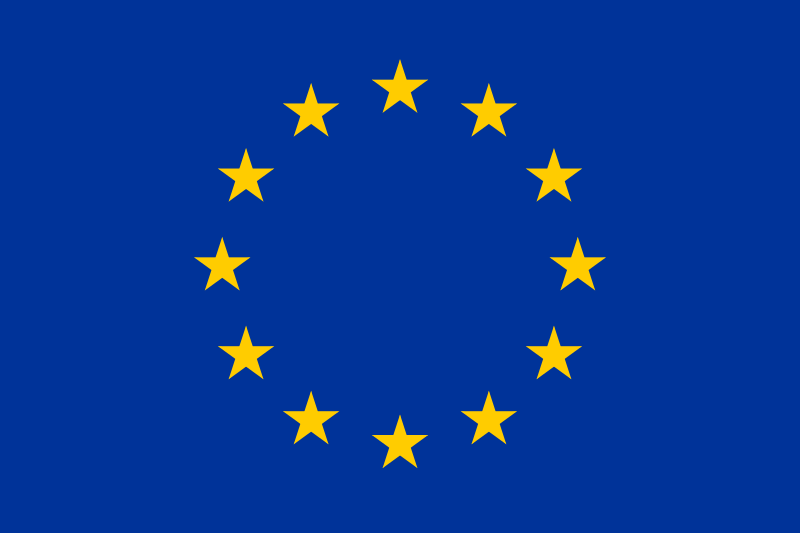A boy or a girl or a person, intersex people lack recognition in Europe
On 1 March, Fox News presenter Clayton Morris had to apologise for his “ignorant and stupid” comments mocking the new gender options for Facebook profiles which allow users to register as intersex. The TV presenter had ridiculed the move of the social media company referring to intersex by saying “whatever that is”. This case illustrates the prejudice and ignorance surrounding the reality of individuals who cannot be clearly classified as male or female at birth. Most countries worldwide still neglect this human rights problem and intersex people remain invisible to the majority.
The International Day against Homophobia and Transphobia of 17 May is also aimed at highlighting the struggle against the discrimination and prejudice suffered by intersex people. The word “intersex” has replaced “hermaphrodite”, which was widely used by medical practitioners during the 18th and 19th centuries. The social expectations for either a girl or a boy at birth, or a woman or a man in society, are the source of the problems intersex people face. Society does not usually recognise a person without reference to their sex. Yet intersex individuals’ chromosomal, anatomical or gonadal characteristics do not belong exclusively to either sex. This is why intersex persons encounter huge barriers to the enjoyment of their human rights.
Surgeries without consent
The situation of intersex persons is not well known. Recent research [4] has demonstrated that the parents of intersex babies are often ill-informed and baffled. Medical professionals may be quick to propose “corrective” surgeries and treatments aiming to “normalise” the sex of the child. Such surgeries, which are cosmetic rather than medically necessary, are often performed on intersex babies and toddlers. This can result in irreversible sex assignment and sterilisation performed without the fully informed consent of the parents and, even more importantly, without the consent of intersex persons themselves.
“Corrective” operations and treatment are usually traumatising and humiliating. They can take a long time and post-operative complications are common. There are long-term effects on intersex individuals’ mental health and well-being. The sex assigned to children at an early age may not correspond with their identity and feelings later on.
In addition, medical services are rarely transparent about the statistics of operations performed on intersex individuals and even the people treated experience difficulties in accessing their own medical records, as pointed out in a study [5] published by the Heinrich Böll Foundation last year.
Rights to self-determination and physical integrity
The early “normalising” treatments do not respect intersex persons’ rights to self-determination and physical integrity. Intersex babies and younger children are not in a position to give their consent. The proxy consent given by parents may not be free and fully informed and can hardly take into account the best interests of the child in the long-run.
The UN special rapporteur on torture [6], Juan E. Méndez, has called on all states to repeal any law allowing intrusive and irreversible treatments, including forced genital-normalising surgery, when carried out without the free and informed consent of the person concerned. Intersex individuals’ choice not to undergo sex assignment treatment must be respected.
When operations are not necessary on medical grounds, they should only take place at an age when intersex persons can give their consent and participate actively in decisions about treatment and sex assignment. This position has been advocated by the Swiss National Advisory Commission on Biomedical Ethics [7] which acknowledged the past suffering of intersex persons in November 2012 and called for an end to surgery for sociocultural reasons.
Information and support
Intersex children, their parents and families need adequate counselling and support, as highlighted by the Parliamentary Assembly of the Council of Europe [8], among others. Civil society advocates of intersex people should be able to participate in the provision of information and services to intersex families in addition to medical and social professionals. There is also a need to improve training about intersex issues and their human rights implications among health and social services.
Legal recognition
Birth certificates and many other official documents almost always require the identification of the sex of the individual concerned. It is usually impossible to differentiate the official recognition of the person from the definition of that individual’s sex. Therefore a person without a clearly identifiable sex can easily fall into a limbo of unrecognised personal status without official documentation.
Since November 2013 in Germany [9], it has been possible to choose “blank” in addition to “female” and “male” on birth certificates. Therefore it is no longer necessary to identify the sex of children at birth. The practical consequences of this legal change remain to be seen and it is not yet possible to exercise similar choices when issuing identity cards and passports.
Raise awareness and review legislation
There is a need to raise awareness of and collect more data on the situation of intersex persons in society and the discrimination and prejudice they encounter in daily life also as adults. The reform of the Sex Discrimination Act [10] in Australia last year introduced the ground of “intersex status” among other prohibited grounds of discrimination. This is a powerful tool to foster the equality of intersex people.
I urge governments in Europe to review their current legislation and medical practices to identify gaps in the protection of intersex people and take measures to address the problems. Policy makers should involve civil society advocates of intersex persons such as the OII Europe [11] and ILGA-Europe [12] in these efforts. The enjoyment of human rights is universal and it cannot depend on the sex of the person. Intersex individuals must be granted full legal recognition from birth and amendments to their sex or gender classification should be facilitated to reflect their individual choices.
Nils Muižnieks
Article printed from Human Rights Comment: http://humanrightscomment.org
URL to article: http://humanrightscomment.org/2014/05/09/a-boy-or-a-girl-or-a-person-intersex-people-lack-recognition-in-europe/
URLs in this post:
[1] Facebook28: http://www.facebook.com/sharer.php?u=http://humanrightscomment.org/2014/05/09/a-boy-or-a-girl-or-a-person-intersex-people-lack-recognition-in-europe/
[2] Twitter12: https://twitter.com/share?original_referer=http%3A%2F%2Fhumanrightscomment.org%2F&source=tweetbutton&text=A+boy+or+a+girl+or+a+person+%26%238211%3B+intersex+people+lack+recognition+in+Europe&url=http%3A%2F%2Fhumanrightscomment.org%2F2014%2F05%2F09%2Fa-boy-or-a-girl-or-a-person-intersex-people-lack-recognition-in-europe%2F&via=CommissionerHR
[3] Image: http://humanrightscomment.org/wp-content/uploads/2014/03/HRC-intersex-500×312.jpg
[4] research: http://www.ncbi.nlm.nih.gov/pubmed/23742202
[5] study: http://www.boell.de/sites/default/files/endf_human_rights_between_the_sexes.pdf
[6] UN special rapporteur on torture: http://www.ohchr.org/Documents/HRBodies/HRCouncil/RegularSession/Session22/A.HRC.22.53_English.pdf
[7] Swiss National Advisory Commission on Biomedical Ethics: http://www.google.com/url?sa=t&rct=j&q=&esrc=s&frm=1&source=web&cd=1&cad=rja&ved=0CCoQFjAA&url=http%3A%2F%2Fwww.bag.admin.ch%2Fnek-cne%2F04229%2F04232%2Findex.html%3Flang%3Den%26download%3DNHzLpZeg7t%2Clnp6I0NTU042l2Z6ln1ad1IZn4Z2qZpnO2Yuq2Z6gpJCKfX96f2ym162epYbg2c_JjKbNoKSn6A–&ei=gtpfUp7VDKGL7AaR5YHoBQ&usg=AFQjCNGQZOVU2UkSDiYbZW8C7mtw_G1PDA&bvm=bv.54176721,d.ZGU
[8] Parliamentary Assembly of the Council of Europe: http://assembly.coe.int/nw/xml/XRef/X2H-Xref-ViewPDF.asp?FileID=20174&lang=en
[9] Germany: http://www.spiegel.de/international/europe/third-gender-option-in-germany-a-small-step-for-intersex-recognition-a-917650.html
[10] reform of the Sex Discrimination Act: http://www.aph.gov.au/Parliamentary_Business/Bills_Legislation/Bills_Search_Results/Result?bId=r5026
[11] OII Europe: https://www.oiieurope.org/
[12] ILGA-Europe: http://www.ilga-europe.org/










